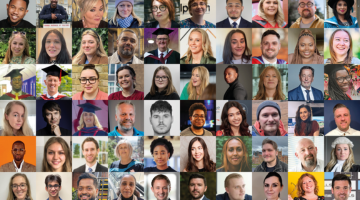Politicians and teachers have the power to change the world if they can learn to work together

Baroness of Yardley Estelle Morris discussed the relationship between education and politics as the latest guest speaker in the LJMU Roscoe lecture series.
Baroness Morris started her career in education as a teacher in an inner city multiracial comprehensive school where she taught for 18 years.
In 1992 she entered parliament and in 2001 became the Secretary of State for Education and Skills as part of Tony Blair’s Labour Government.
She later moved to become minister of the Department of Culture Media and Sport and left Parliament in 2005.
Since then she has combined a career that includes senior posts both in education and the arts as well as being a member of the House of Lords.
Baroness Morris now works at the Institute of Effective Education, which aims to transform the relationship between education research and practice so that policy making and teaching can become more evidence based.
She opened her lecture by highlighting her reasoning for going into education and also politics – to make a difference and change the world.
Baroness Morris said: “Just think what the worst dictator in the poorest country will do when they seize power – take control of the education system.
“That’s how important it is – it’s the most powerful influence on a person’s development outside their own family.”
She then went on to show the audience unattributed party vision statements made about education since 1945 and asked them to vote on whether they believed each statement was Labour or Conservative.
The audience couldn’t agree on any of the statements proving her point that in their hearts all politicians have similar aspirations for improving education, but the parties begin to clash when these become aligned with political policy.
While the Labour party may look to improve education by breaking down barriers the Conservatives may strive for continuity.
She said: “Politicians have made educational policies into political policies.
“Health ministers don’t tell doctors and nurses what to prescribe, education ministers do tell teachers what to teach and that’s the problem.
“What do we say about teachers? – They’re born not made, we’ve never treated teachers as a proper profession with a body of knowledge.
“The thing that can make a difference in education is a good teacher.”
Baroness Morris highlighted her hopes for the future to reform education by redrawing the boundaries between education and politics and the systematic creation of a recognised education evidence base.
She also called for open debate on key educational issues including the role of the state, the market, competition and co-operation, finance and innovation.
She said: “The lines between politics and education need to be redrawn, because there has been no traditional evidence base in education and politics has filled the void.
“The irony is political parties now argue about things, which they basically agree.
“I still believe what I believed at 20, the way to change the world is to go into politics and education; and the way to do that most effectively is to work together.”


